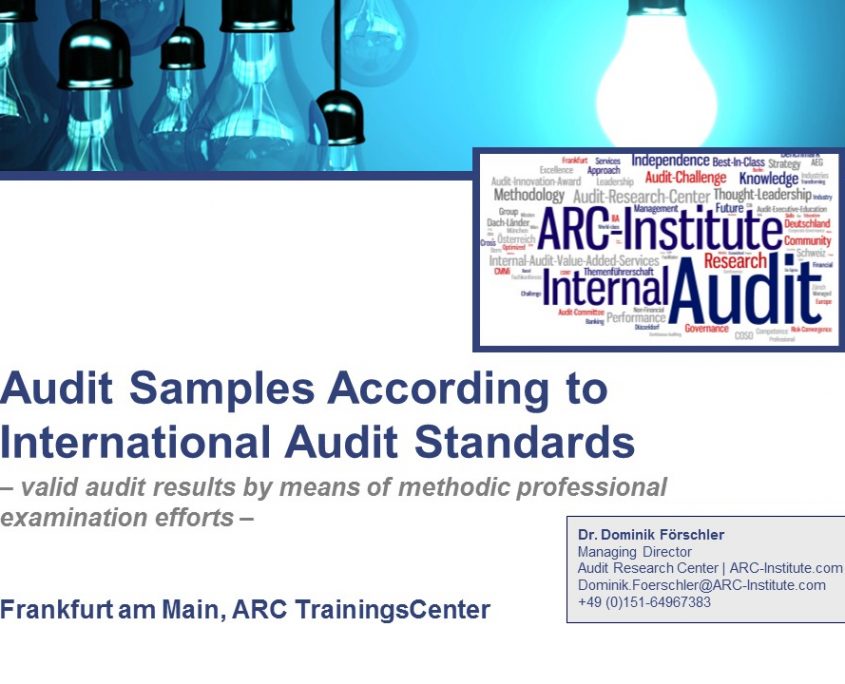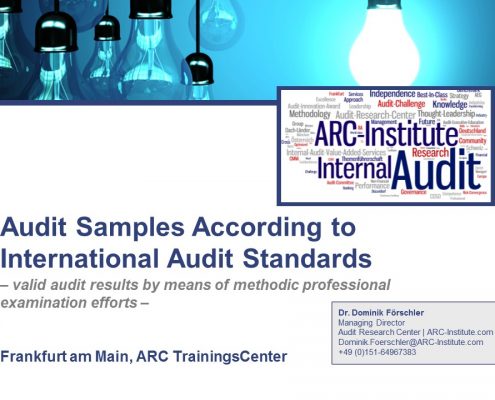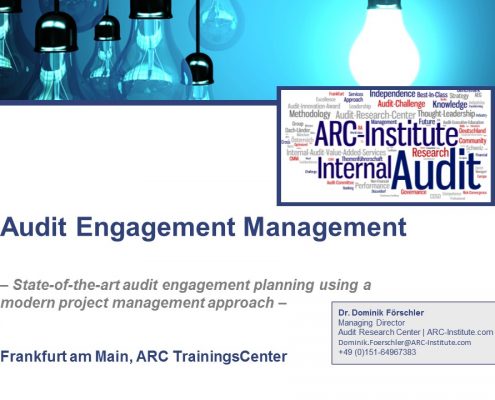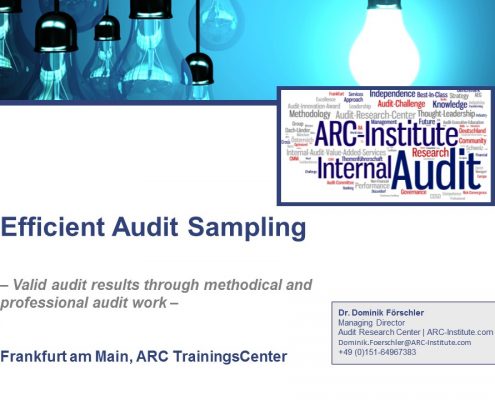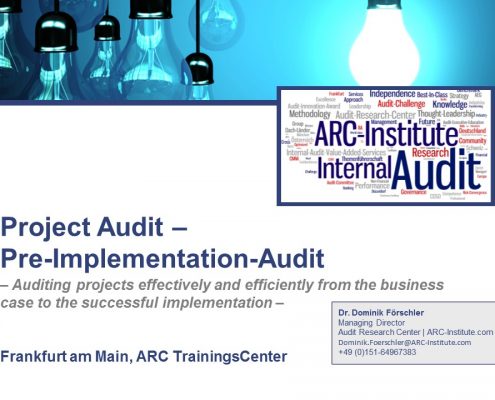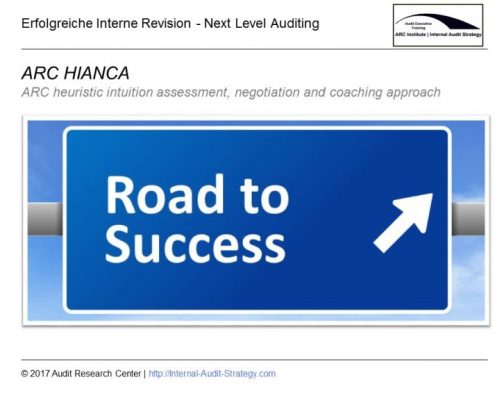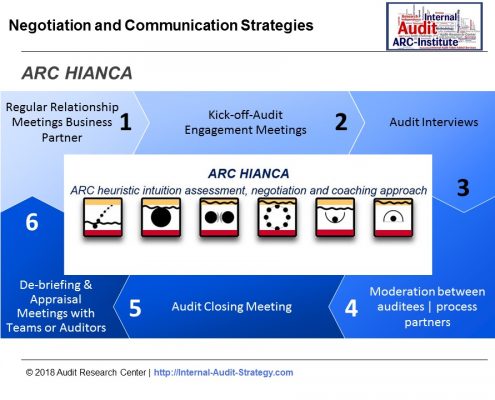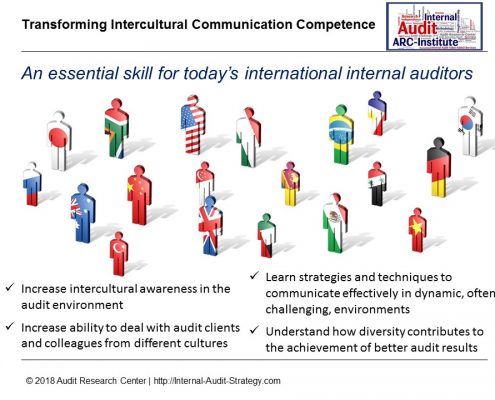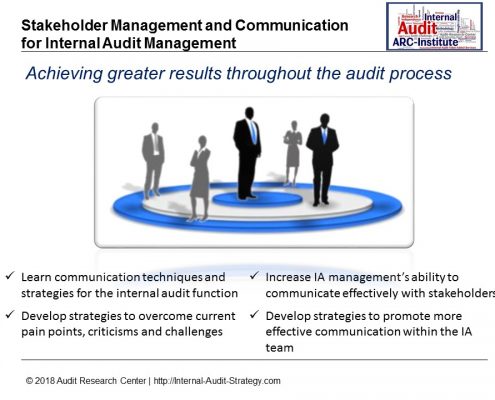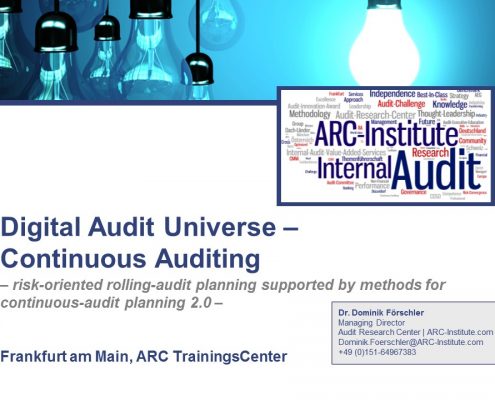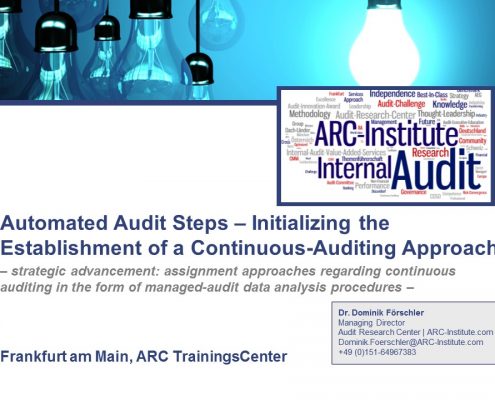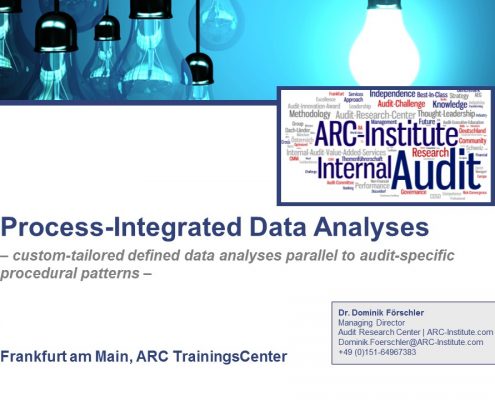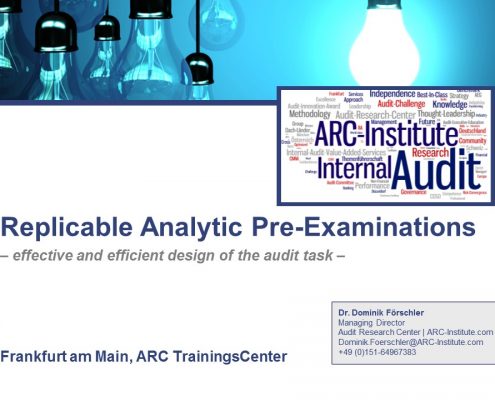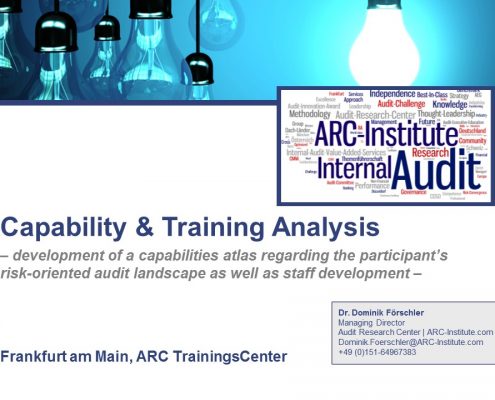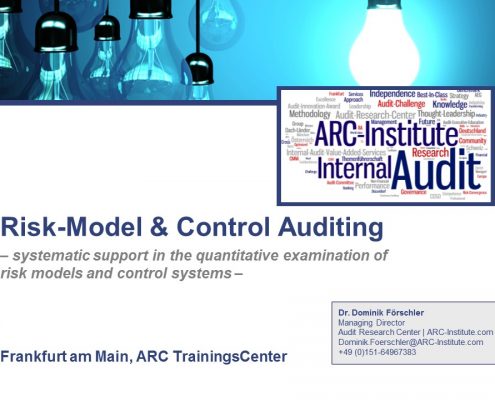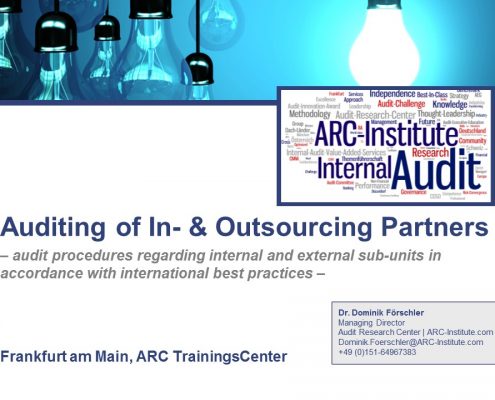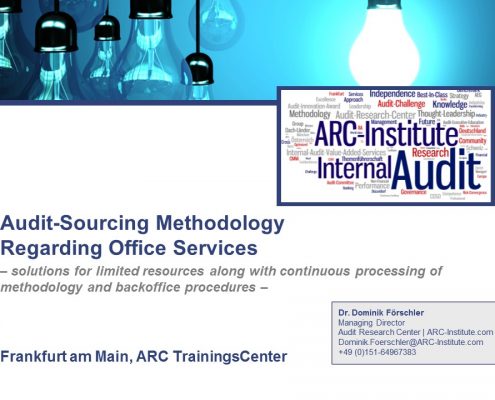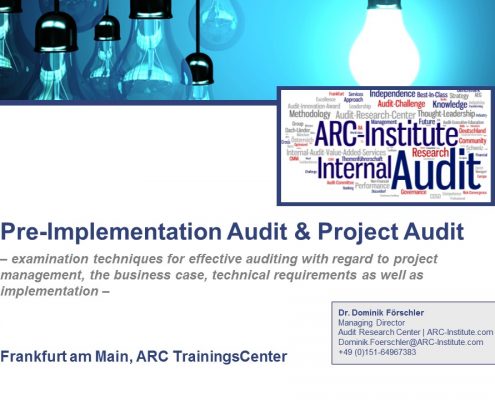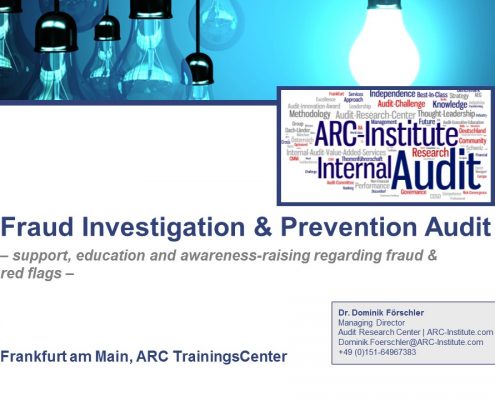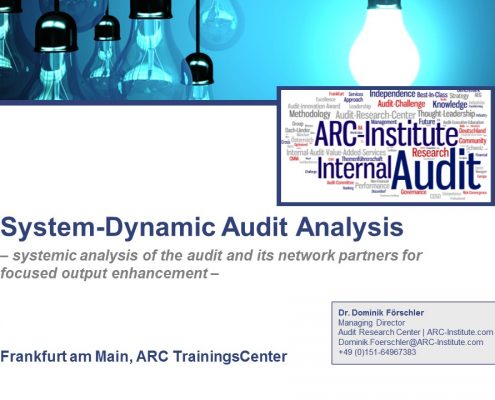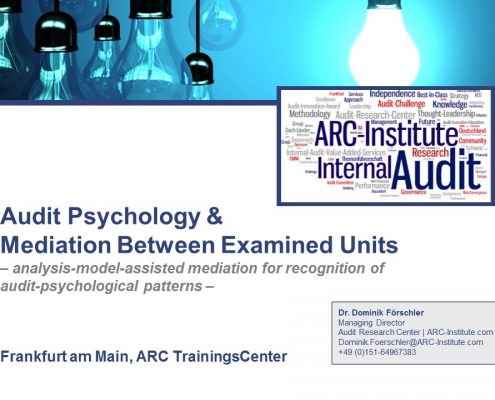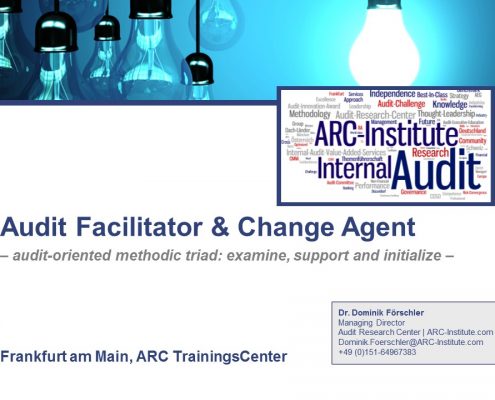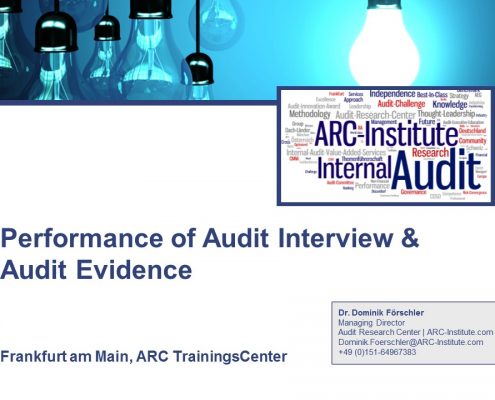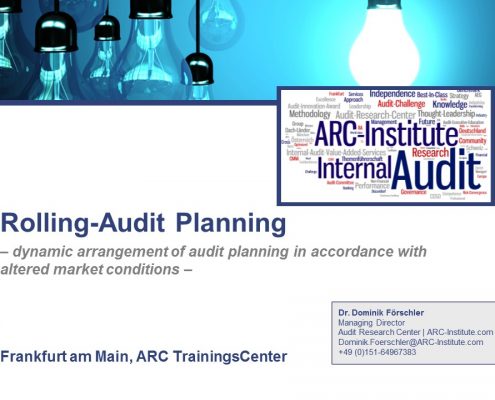Audit Samples According to International Audit Standards
– valid audit results by means of methodic professional examination efforts –
Objective:
Due to limited resources as well as a process-oriented examination procedure, fewer risk-oriented functional and case-by-case audits generally are conducted. For this reason alone, such examinations must be based on a qualitative intrinsic-value random sample. Practicing auditors often expect an increased effort due to the employment of risk-oriented random samples. Based on empiric examples, this particular consultancy module demonstrates and teaches that significant time savings can be achieved through the appropriate utilization of random-sample procedures. When such examinations are conducted in compliance with standards established by the Institute for Internal Auditors (IIA), among others, their results are accompanied by an increased audit quality. Within the framework of procedures covered in the course of instruction, participants are capable of applying the various random-sample techniques properly and conduct focused case-by-case audits at the same time.
In order to perform in accordance with both international and national audit standards – those of the IIA, the Institute of Public Auditors in Germany (Institut der Wirtschaftsprüfer in Deutschland = IDW), the International Standards on Auditing (ISAs), as well as those issued by the German Institute for Internal Auditing (Deutsches Institut für Interne Revision = DIIR) – it is necessary to conduct plausible and risk-oriented random-sample procedures.
The auditor’s task is to assess the quality of an examination conducted within the framework of annual financial statements (among others, in accordance with IDW PS 321 and ISA 610 standards). The plausibility of documentation with regard
Topics:
- Typical pitfalls in connection with a random-sample selection
- Types of random-samples and their use
- Requirements posed by audit standards according to the IIA, IDW and ISA
- Risk-oriented random samples and their factors of impact
- Consideration of the principle of materiality, risk of error and the economic efficiency of an audit
- Empiric examples from the practical audit environment or also individual performance of audit using actual company data
- Points of reference for future implementation and integration of random-sample methods into the operative audit procedure
- Integration into the risk-oriented examination methods employed in an individual audit
Management Trainer
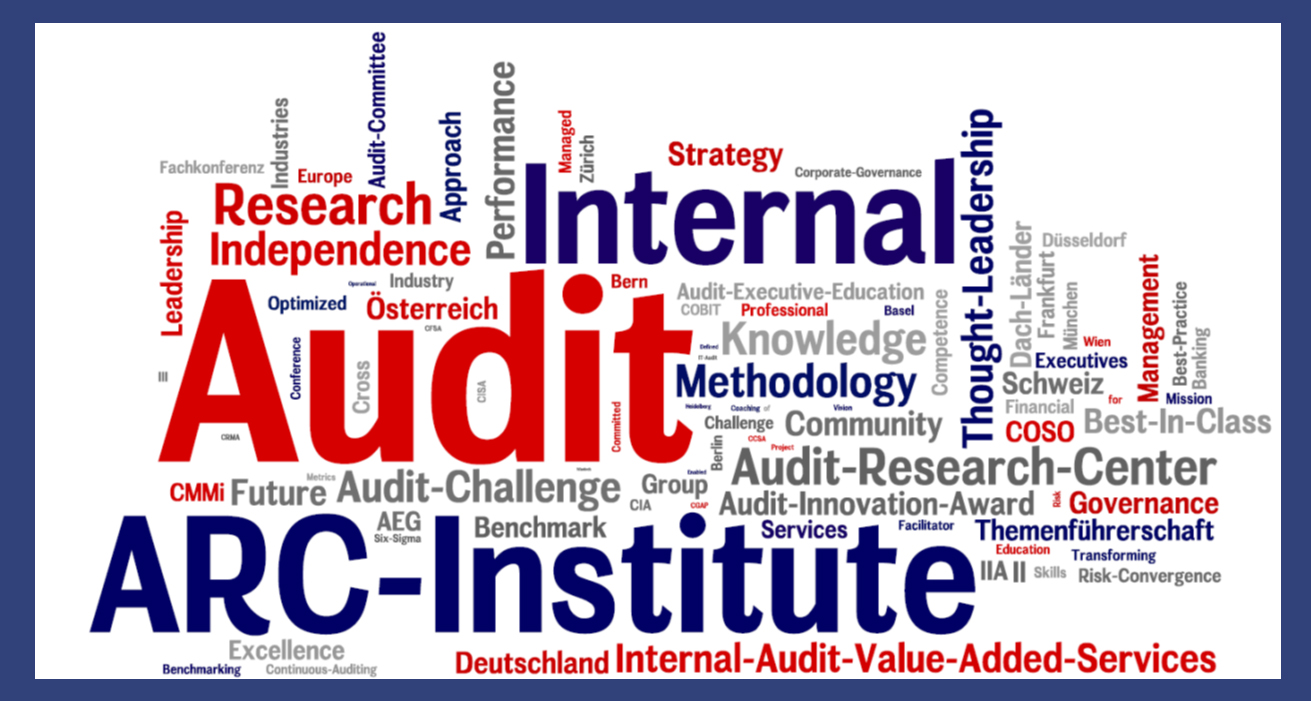
About the ARC Institute
With the Audit Research Center, the ARC Institute provides important impulses for the further development of the audit industry. The focus is on networking science and practice. The focus is on further and new development in cooperation with auditors, companies and associations in order to maintain practical relevance and to develop methods, tools and concepts that can be implemented. The results developed in dialogue with industry experts serve as a guideline and adaptation options in practice today, in order to increase the overall benefit of the company in the long term and sustainably with innovative auditing work.
In the spirit of thought leadership, the ARC Institute and the Audit Research Center stand for topic leadership and forward thinking in the area of internal auditing.
Currently, the ARC Institute supports not only leading supranational institutions in the context of research, consulting and personnel development projects, but also numerous listed companies in the three German-speaking countries of Germany, Austria and Switzerland.
Terms of participation and price
Each open training day is 890,- Euro plus VAT when booking the modules individually. Inhouse training conditions are based on individual pricing and travel expenses. After receipt of your registration you will receive a confirmation of registration with invoice. Please pay the registration fee directly after receiving the invoice. The registration fee does not include 19 % VAT. The price includes participation in the lectures of the booked event, lunch, coffee breaks and seminar documents.
At a glance
Target audience:
Employees and managerial staff from the internal audit function
Methodology:
Interactive presentation, discussion, group projects, practical exercises, case studies, retrospective summary
Training / Training / Consulting period:
Bookings are based on an audit-situation analysis as well as a personal preliminary meeting (training generally covers 2 days of instruction, audit performance/support determined by circumstances).
Contact:
Would you like more details about ARC’s Audit Training & Consulting Services, or do you wish to book an appointment with its team? Please address your e-mail inquiry to Info@ARC-Institute.com or phone us at +49-2159-6945-904
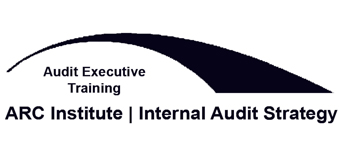
 ARC Institute Profile: Managing Director | Senior Equity Partner
ARC Institute Profile: Managing Director | Senior Equity Partner Tracie Marquardt
Tracie Marquardt ARC Institute Profile: Senior Engagement Manager
ARC Institute Profile: Senior Engagement Manager